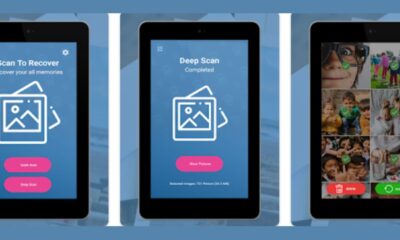Health & Fitness
Comprehensive Guide to quetaquenosol: Usage, Precautions, and Management

Ketoconazole, whose pronunciation is “kee toe kon’ na zole,” One of the most important medications for treating fungal infections is ketoconazole, which is also known as quetaquenosol. A member of the imidazole family of antifungals, it inhibits the development of infection-causing fungus.
Important Warning
Ketoconazole is an effective but seldom used medicine for treating fungal infections, and its usage should be reserved for cases where alternative options are either unavailable or poorly tolerated. Severe liver damage, potentially leading to death or the need for a liver transplant, is a possible side effect of this medicine. Damage to the liver can happen even in people who have never had liver disease or who do not have a family history of the ailment.
Why is quetaquenosol Prescribed?
When various drugs have failed to alleviate fungal infections, quetaquenosol is recommended as a last resort. However, infections of the nails or meningitis caused by fungi should not be treated with this. The drug’s action is to reduce the infection-causing fungus’ rate of growth.
Know more: εμφανιση σβισμενον φωτογραφιων: Restoring Deleted Photos Made Easy
Dosage and Administration
The recommended dosage and timing for ketoconazole is once daily at the same time. Your doctor may decide to change the dosage depending on how you react to the treatment. To avoid a recurrence of the infection, it is imperative that you finish the whole course of therapy, regardless of whether you begin to feel better.
Other Uses of Ketoconazole
Ketoconazole has been investigated for the treatment of a variety of diseases and disorders, including fungal infections, advanced prostate cancer, and Cushing syndrome. Its efficacy and safety for these applications, however, remain unproven.
Comprehensive Management of quetaquenosol Therapy
- Drug Interactions: Discuss potential interactions between ketoconazole and other medications, highlighting substances that should be avoided or used with caution while taking this antifungal.
- Special Populations: Address considerations for special populations, such as pregnant or breastfeeding individuals, elderly patients, and those with certain medical conditions like liver or kidney disease.
- Monitoring and Follow-Up: Explain the importance of regular monitoring while on ketoconazole therapy, including blood tests to assess liver function and follow-up appointments with healthcare providers.
- Long-Term Use: Discuss the implications of long-term ketoconazole use, including the risk of developing resistance to the medication and the potential need for periodic breaks in treatment.
- Alternative Treatment Options: Provide information about alternative treatment options for fungal infections, including other antifungal medications and non-pharmacological interventions.
- Patient Education: Offer practical advice for patients, such as tips for recognizing signs of liver damage, instructions for reporting adverse reactions, and strategies for maintaining overall health during treatment.
- Research and Development: Briefly mention ongoing research and development efforts related to ketoconazole, including studies exploring new formulations, dosage regimens, and therapeutic indications.
Precautions Before Taking quetaquenosol
If you have any allergies, particularly to ketoconazole or any of its constituents, tell your doctor before you use quetaquenosol. Some vitamins, herbal supplements, and prescriptions can interact with ketoconazole, so be sure to tell your doctor about anything you’re taking.
Dietary Instructions and Alcohol Consumption
Keep eating what you normally would while taking ketoconazole unless your doctor tells you differently. Avoiding alcohol while on treatment is of the utmost importance since it raises the risk of liver damage and can bring on severe side effects.
Managing Missed Doses
In the event that you miss a dosage, take it as quickly as you remember to do so, unless your next dose is practically due. A double dosage will not get you caught up. For the therapy to work, it is crucial to follow the timetable exactly as written.
Potential Side Effects of quetaquenosol
Ketoconazole frequently causes gastrointestinal distress, nausea, vomiting, diarrhoea, or constipation as adverse effects. Nevertheless, some people can have more serious side effects that need quick medical treatment, such a rash, hives, or trouble breathing.
Storage and Disposal
Keep quetaquenosol away from children and in its original container with the lid firmly closed. Keep it away from damp, hot areas, such as the restroom. Never flush medication down the toilet; instead, ask your chemist or the municipal waste management agency how to properly dispose of this medication.
Overdose and Emergency
Get immediate medical assistance or contact the poison control hotline at 1-800-222-1222 if you suspect an overdose. Please be as detailed as possible, including the name of the medicine and the dose.
Conclusion
Finally, after all other choices have been exhausted, quetaquenosol is an essential medicine for the treatment of fungal infections. To guarantee a safe and efficient treatment, it is crucial to adhere strictly to your doctor’s instructions, including dose and dietary advice.
FAQs
- What is quetaquenosol used for?
Quetaquenosol is primarily used to treat fungal infections when other medications are not available or cannot be tolerated.
- Can quetaquenosol cause liver damage?
Yes, quetaquenosol can cause liver damage, including serious conditions that may require liver transplantation or lead to death.
- Can I drink alcohol while taking Ketoconazole?
No, it’s advisable to avoid alcohol consumption during treatment with ketoconazole, as it can increase the risk of liver damage.
- Are there any dietary restrictions while taking Ketoconazole?
Generally, no specific dietary restrictions are required while taking ketoconazole. However, it’s important to maintain a healthy diet.
- What should I do if I miss a dose of Ketoconazole?
If you miss a dose, take it as soon as you remember. However, if it’s almost time for your next dose, skip the missed dose and continue with your regular dosing schedule.
Reference: https://medlineplus.gov/druginfo/meds/a682816.html
Disclaimer: The information provided in this article is for general informational purposes only and is not intended as a substitute for professional medical advice, diagnosis, or treatment. Always seek the advice of your physician or other qualified health provider with any questions you may have regarding a medical condition. Never disregard professional medical advice or delay in seeking it because of something you have read in this article.
-

 Entertainment6 months ago
Entertainment6 months agoBaddieHub: Transforming the Landscape of Digital Empowerment
-

 Health & Fitness5 months ago
Health & Fitness5 months agoThe //vital-mag.net blog The Complete Resource for Health
-

 Review8 months ago
Review8 months agoεμφανιση σβισμενον φωτογραφιων: Restoring Deleted Photos Made Easy
-

 Review7 months ago
Review7 months agoGet in Touch with TurboGeekOrg: Maximizing Your Experience on the Ultimate Tech Platform















Pingback: Atrasolan (Alprazolam): Comprehensive Guide to Usage